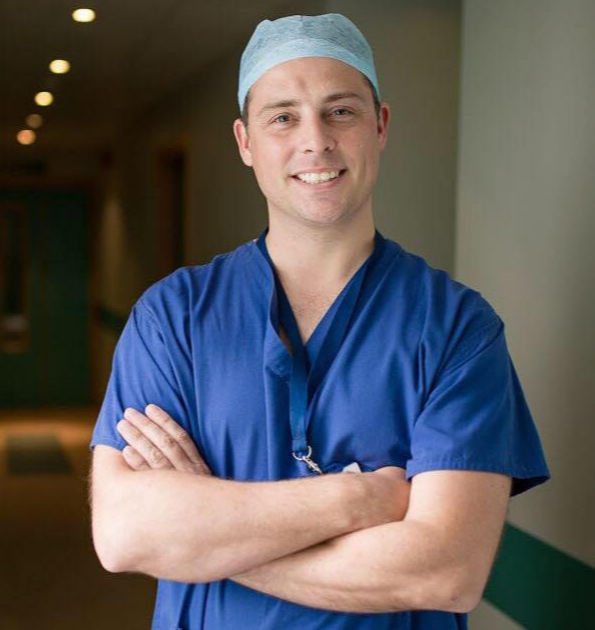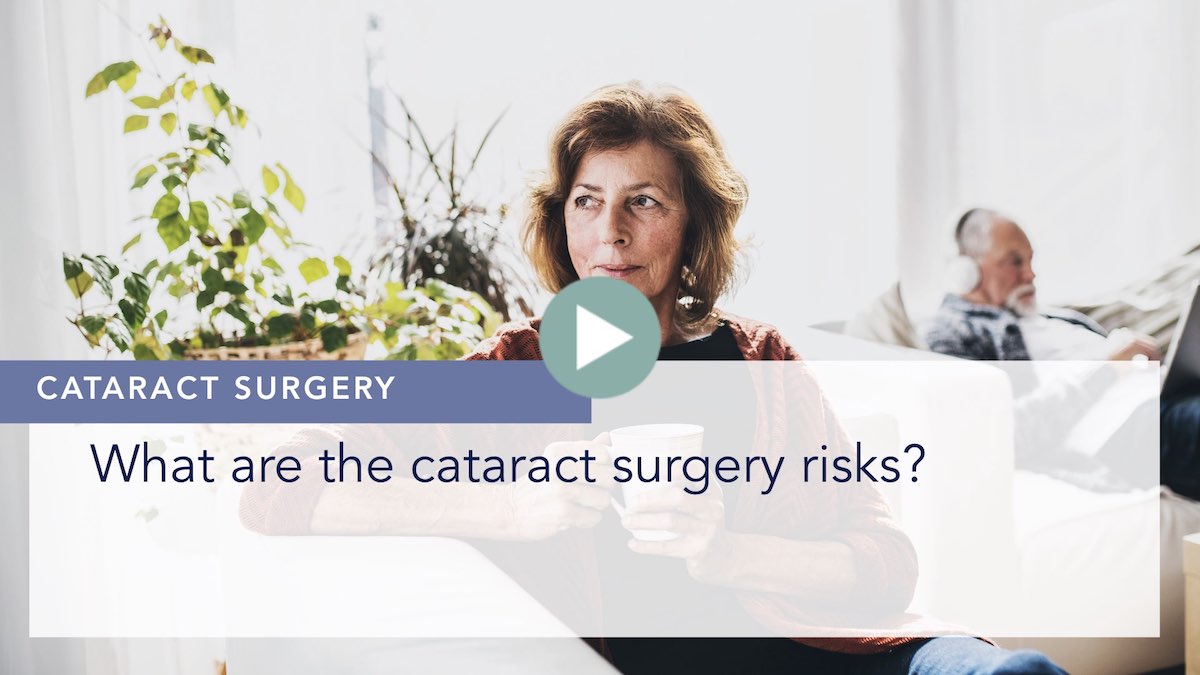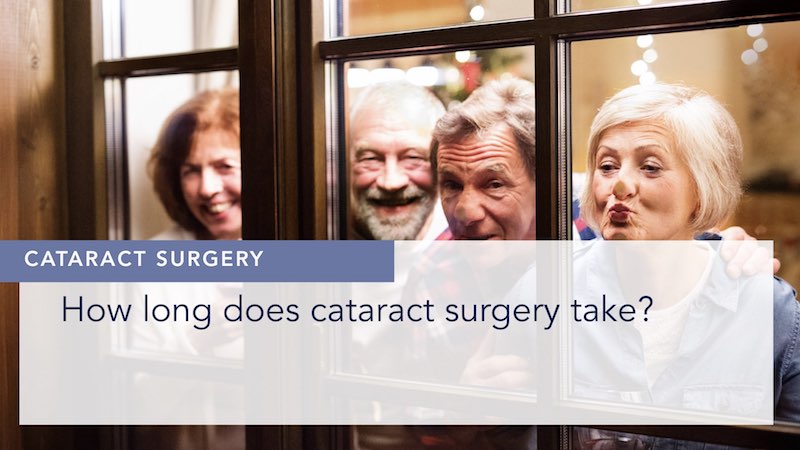Interview transcription:
We asked Alex Shortt about cataract surgery risks.
Interviewer: Every procedure has risks. What are the specific risks involved in cataract surgery?
Alex Shortt: It is important that your surgeon sits down with you face to face and explains the risks of cataract surgery, or this lens exchange surgery. Recently the Royal College of Ophthalmologists, which is our regulatory college which gives us our qualification as an ophthalmic surgeon, have gotten together a working group.
That’s really helpful, both for patients, but also for us surgeons. They have gone through the risks of all these procedures, and have written a patient guide, and also a set of guidelines for us as surgeons about what we should be telling patients are the risks. And we have to follow those guidelines, and they are absolutely explicit about what the risks are.
Loss of vision
And what those guidelines say is that the risk of losing significant vision, of ending up nearly blind in one of your eyes is one in 10,000 operations. That’s incredibly small. The risk of it happening in both eyes is in the region of one in 12 million. So a very small risk, and that’s a catastrophic outcome.
To put it in context for you, I’m likely to do about 10, maybe 20,000 cataract operations in my career. So what that means is that somewhere during my career, I will have one, or maybe two patients who lose a significant vision in one of their eyes. It hasn’t happened yet, but there is a potential for that to happen, and we have to be clear with patients on that.
Imperfect results
The second thing that the Royal College of Ophthalmologists insists we tell patients is that in one in 500 operations, the vision isn’t quite right in one of the eyes. The vision is less than we expected it to be. Now in many of those cases, it can be rectified but would require some more treatment to correct the vision.
Minor complications
There’s a whole host of minor complications that can arise from surgery including inflammation of the eye, dryness of the surface of the eye, gritty, sore eyes or high pressure in the eyes.
But these are all treatable, especially if you’re being looked after individually by your consultant. You have access to him, and the ability to contact him and say, “look, my eyes are gritty and sore”, then they will see you, treat this, address it and it will go away. And it’s a minor inconvenience.
And overall we group these, you know, extra course of eye drops, or a little bit of extra treatment into a 1% figure. So one in 100 people will need a little bit of treatment to sort out a minor complication after surgery.
If you’d like to know more about vision corrective surgery, book a free initial screening today and I will personally answer your questions. Alternatively, take our free suitability quiz to find out which treatment you are suitable for.

About the author
Mr Alex J. Shortt | Consultant Ophthalmic Surgeon
MB BCh MSc PhD FRCOphth PGDipCatRef
I’m Alex Shortt, a highly trained academic researcher and Consultant Ophthalmic Surgeon based in London’s famous Harley Street medical district. I trained and worked as a consultant for 14 years at London’s Moorfields Eye Hospital. I specialise in advanced technologies for correcting vision, including cataract surgery, implantable contact lenses and laser vision correction.






